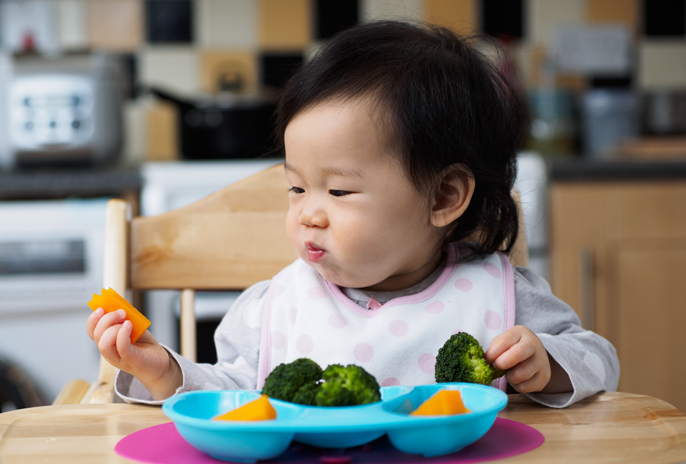Many parents want to raise children who choose and eat healthy foods. They also want their kids to grow up with a healthy self-esteem. To help steer kids in these directions, parents can teach their kids about nutrition and health.




Talking too much about a child’s weight may hurt the development of a healthy self-esteem. Researchers at the University of Minnesota Medical School recommend parents avoid talking about weight with their children (even if there is a problem) and instead talk about healthy eating.
In the long run, what you say to your child about food and their body may affect how they think and feel about food and themself. Positive talk helps create a good feeling about food and health, while negative comments can affect the desire to eat healthy food and may hurt self-esteem.
POSITIVE STATEMENT
WHAT YOUR CHILD THINKS ABOUT IT
I like sweet food. This sounds yummy!
NEGATIVE STATEMENT
WHAT YOUR CHILD THINKS ABOUT IT

What you say to a child about nutrition and their body can be a powerful force in their development, especially when they are learning about food and developing sturdy self-esteem.
Of course, no child is the same so they will hear “nutrition talk” differently. Hearing positive things about food in the early years can create a good outlook from the start and help your child feel proud about their eating and body. Using too much negative language can change their feelings about healthy food and may hurt their self-esteem.

HAND EXPRESSION
How it works
Use your hand to gently massage and compress your breast to remove milk.
What’s Involved
Average Cost
Free
Side-Lying Hold
This hold is useful when:
Cross-Cradle Hold
This hold is useful when:
Clutch or “Football” Hold
This hold is useful when:
Cradle Hold
This hold is useful when:
Laid-Back Hold
This hold is useful when: